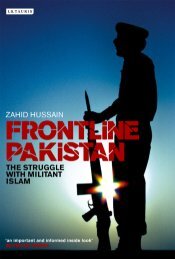Who Owns Pakistan - Yimg
Who Owns Pakistan - Yimg
Who Owns Pakistan - Yimg
You also want an ePaper? Increase the reach of your titles
YUMPU automatically turns print PDFs into web optimized ePapers that Google loves.
group has been winning FPCCI Export Trophy for several years adn<br />
accounted for exports worth Rs 1 billion in 1996-97. The group comprises<br />
of at least seven companies namely 1) JK spinning Mills (formely Zeeshan<br />
Textile) 2) JK Fibre Mills (formely Shahid Textile Mills) 3) JK Energy Ltd 4)<br />
JK Tech (Pvt) Ltd 5) JK Sons (Pvt) Ltd 6) JK Pesticides (Pvt) Ltd 7) Fine<br />
Fabrics (Pvt) Ltd. The JKA group comprises 1) JK Brothers (Pvt) Ltd 2)<br />
Razia Textile Mills, 3) Abid Faiq Textile Mills and 4) JA Textile Mills.<br />
Naveen Group: Another export-oriented group comprising 1) Naveen<br />
Industries (Pvt) Ltd, 2) Sakina Textile Mills (Pvt) Ltd 3) Naveen Exports<br />
(Pvt) Ltd and 4) Ahmad Oriental Textile Mills.<br />
One can go on listing the names of persons and groups who have unlimited<br />
resources at their disposal and avail privileges for which ordinary taxpayer pay. It<br />
is these people and their like who own and operates <strong>Pakistan</strong>.<br />
The Ethnic Divide of Business<br />
As early as 1960 and 1970, Prof Gustav Papnek of Bostan University and Soviet<br />
scholar Sergi Levin took great pains to establish the ethnic background of<br />
<strong>Pakistan</strong>'s leading business elite, evidently because they foresaw that ethnicity of<br />
the insiders ( the sons of the soil) and migrants was to play a central role in the<br />
economic and social well being of the people of <strong>Pakistan</strong>. The clash between the<br />
insiders and outsiders was slated to have a disastrous effect on the psyche of<br />
<strong>Pakistan</strong>i businessmen and economic development of the country.<br />
Papanek established that almost all the major industrial families of the postindepenent<br />
<strong>Pakistan</strong> belonged to five ethnic groups i.e Memons, Dawodi Bohras,<br />
Khojas, Punjabi Sheikhs and Chiniotis. The top 42 industrial groups ranked by<br />
him included only six, Hoti, Premier, Packages, Ghulam Farooq, Colony and<br />
Noon having roots in areas that now constitute <strong>Pakistan</strong>. All other were migrants<br />
and were active on the other side, in pre-independent India.<br />
The morale of these business communities was to become critical to <strong>Pakistan</strong>'s<br />
economic development or lack of development in post-Bhutto era. It continued to<br />
be so even in 1977. Three of the five communities identified by Papanek i.e<br />
Khojas, Bohras and Memons had their roots in the Indian port city of Gujrat and<br />
made Karachi their home in post-independence <strong>Pakistan</strong>. Ironically, of all the<br />
Karachi-based businessmen only Razak Dawood shifted to Lahore when others<br />
of the flock preferred to shift abroad during the adverse days of Zulfikar Ali<br />
Bhutto.<br />
Razak Dawood-A Memon in Lahore.<br />
Razak Dawood presently heads <strong>Pakistan</strong>'s biggest construction and engineering<br />
conglomerate known as Descon group with an estimated turnover of at least Rs<br />
70













